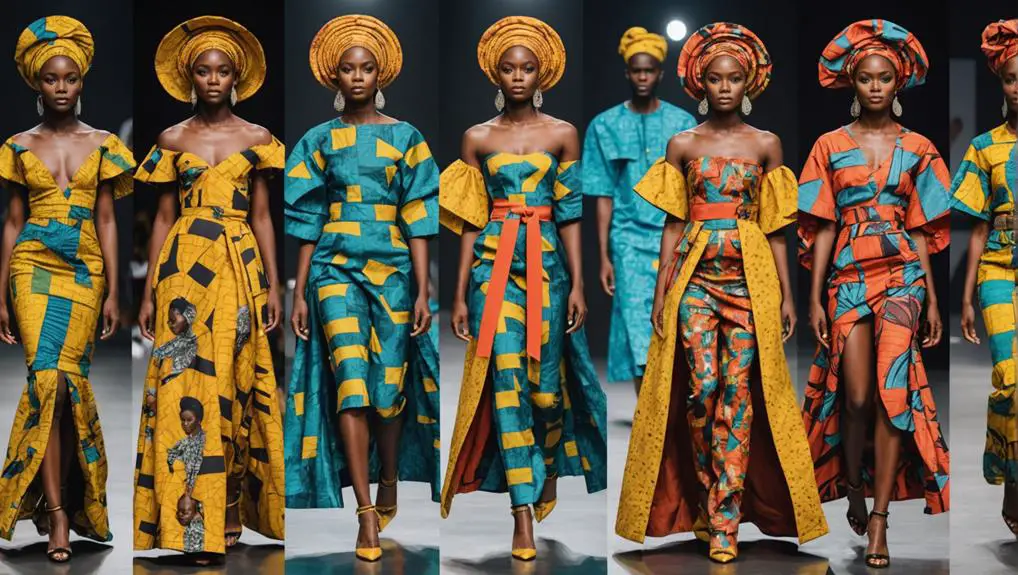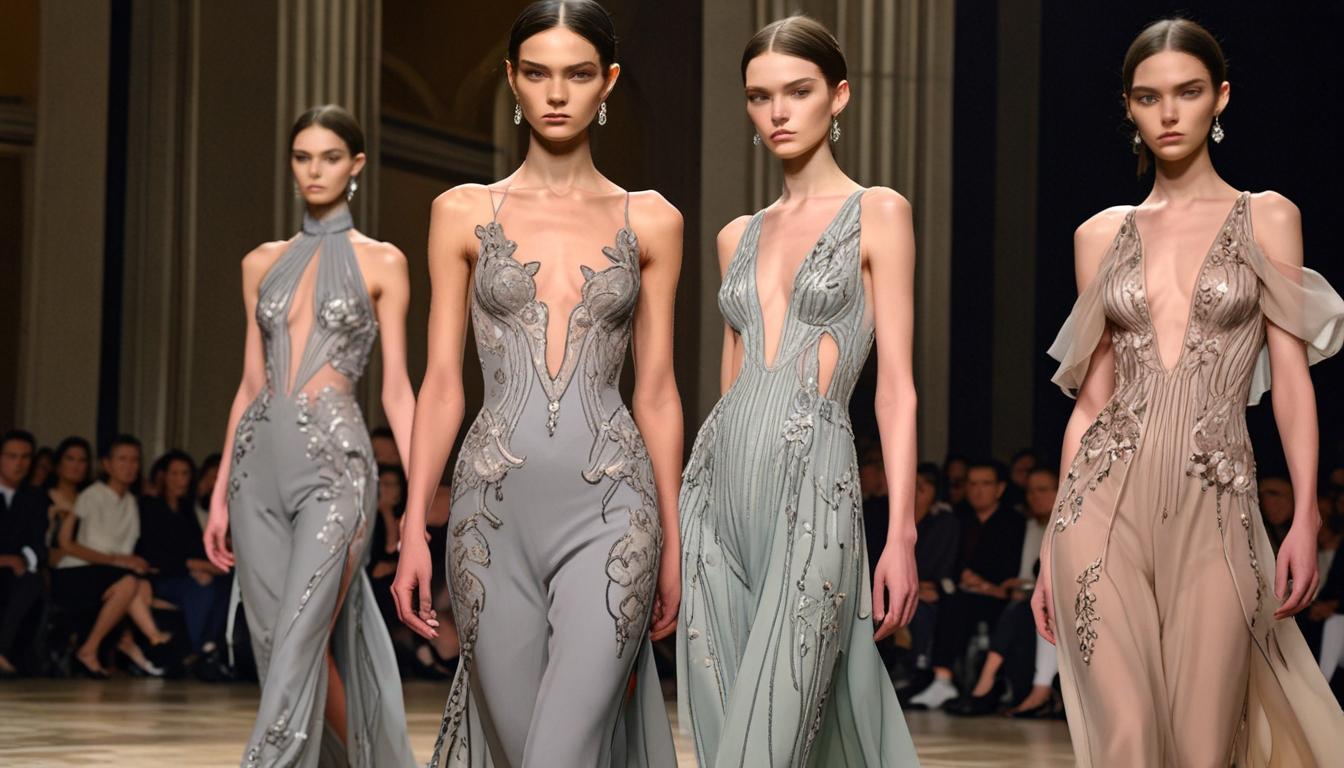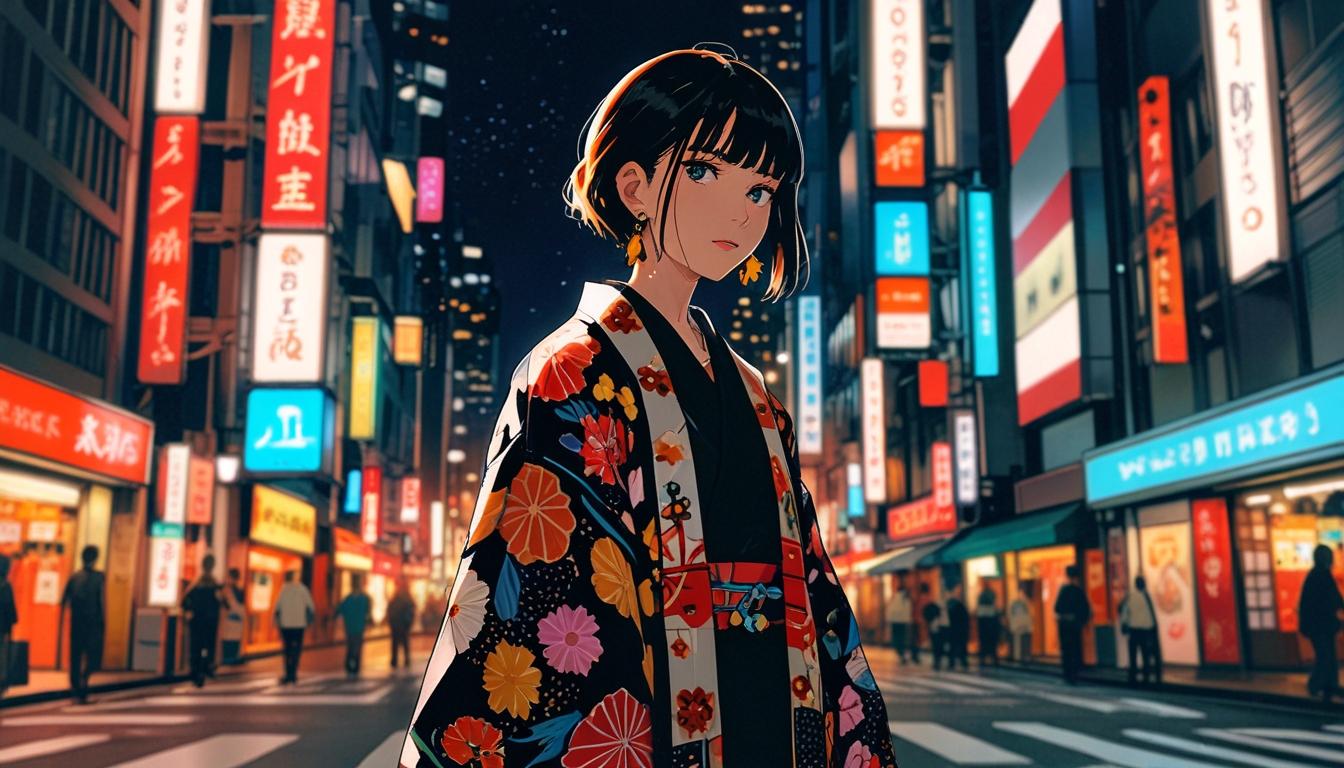Lagos Fashion Week hasn't just changed; it's practically revolutionized the entire fashion landscape of Africa. You might wonder how a relatively young event, started in 2011, has become such a pivotal platform for talent. As you explore its journey, you'll find a compelling story filled with growth, challenges, and global connections that have shaped not just the designers but the very essence of Nigerian fashion. What does this evolution reveal about the future of fashion in Lagos and beyond?
Founding and Initial Vision
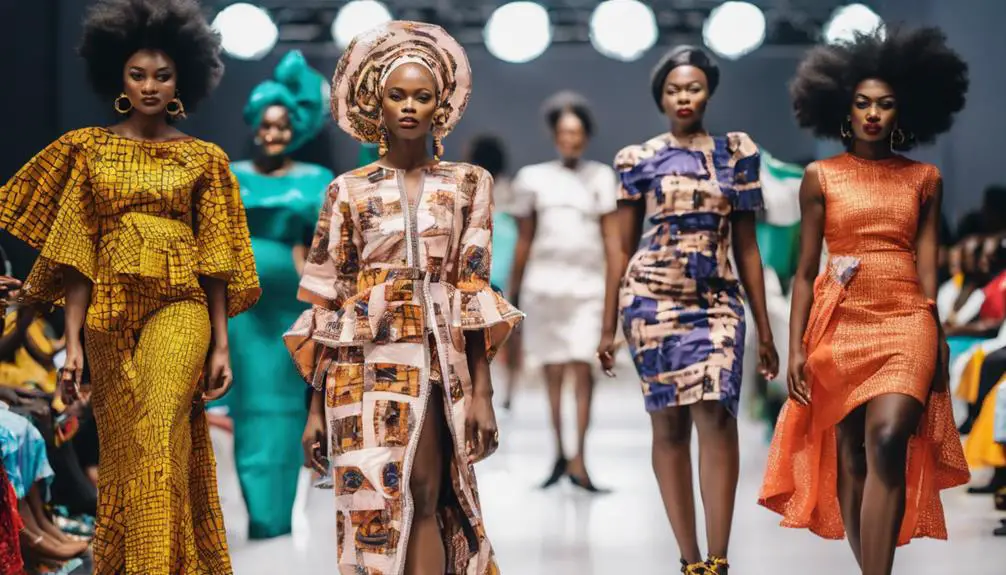
Founded in 2011 by Omoyemi Akerele, Lagos Fashion Week emerged with a clear vision: to elevate Nigerian fashion on a global stage. You might wonder, how did it all begin? The founding principles were simple yet powerful. Akerele wanted to create a platform where emerging designers could showcase their talents and connect with artisans in the industry. Sounds fantastic, right?
But it wasn't all smooth sailing. The initial challenges were pretty intimidating. Akerele faced a lack of resources and recognition for Nigerian fashion. Imagine trying to get everyone on board when the world barely knows what Nigerian fashion is! Yet, she pushed through. Her background in law helped her establish a structured approach, almost like she was drawing up a plan for a case.
With determination, she set out to bridge the gap between talent and opportunity. The idea was to foster collaborations and create a sustainable fashion ecosystem in Nigeria. Think of it as planting seeds in a garden, hoping they'll grow into something spectacular. And guess what? Over time, those seeds blossomed into vibrant runway shows, exhibitions, and networking events that celebrated the richness of African fashion.
Growth and Key Initiatives
Lagos Fashion Week has experienced remarkable growth since its inception, transforming into a pivotal platform for showcasing African talent. Can you believe it? In just over a decade, this event has gone from a small gathering to hosting nearly 50 runway shows and presentations in its latest edition! With attendance jumping from 3,900 in 2022 to around 4,400 in 2023, it's clear that people are excited about what's happening on the African fashion scene.
What's even more impressive are the key initiatives like Fashion Focus Africa and Woven Threads, which are all about nurturing emerging designers and promoting sustainable practices. These programs help new talent shine and encourage them to embrace eco-friendly methods. After all, who doesn't want to look good while being kind to the planet?
Collaborations with international partners, such as the British Council and Pitti Immagine, have also boosted African designers' visibility on a global stage. Plus, initiatives like the Fashion Focus Fund and the Visual Makers Fellowship provide essential support and resources to help these designers grow and succeed. And let's not forget about Green Access—this initiative highlights the importance of a circular fashion economy, showing that you can be stylish and conscious at the same time!
Challenges and Resilience
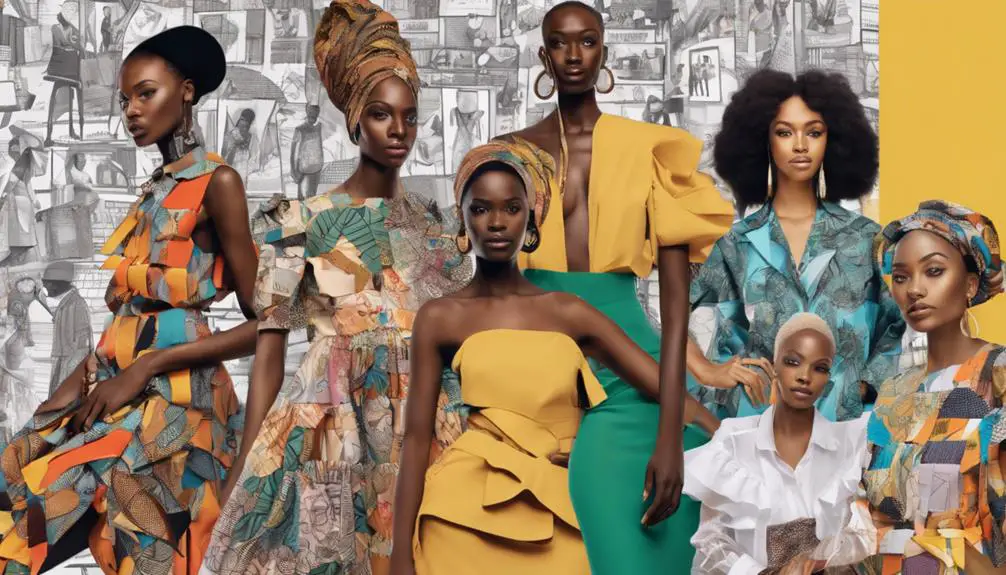
While the fashion industry in Nigeria continues to grow, it faces significant challenges that test its resilience. You might have heard about how the Covid pandemic shook things up. It really highlighted the industry's vulnerabilities and pushed a lot of designers to shift their focus online. Digital transformation became key, as events like Lagos Fashion Week had to adapt to new norms.
Then there are the economic hardships. The Nigerian naira dropped by 26% against the dollar, leading to inflation that makes it tough for designers to rebuild their businesses. It's like trying to build a sandcastle with water slipping through your fingers! But despite these challenges, Lagos Fashion Week pulled in around 4,400 attendees in 2023. That's a big deal! It shows the industry's resilience and determination to bounce back from all those pandemic-related bumps.
The organizers of the latest event even mentioned the miraculous effort it took to make it happen. It's clear that everyone involved is committed to overcoming these economic pressures. However, local designers still rely on partnerships with international retailers to get noticed. It's not easy competing with other established fashion weeks. But you know what? That determination is what makes Nigerian fashion so vibrant and exciting. So, the next time you see a designer's work, remember the challenges they faced and the resilience they showed! Isn't that inspiring?
Global Collaborations and Influence
Amidst the challenges faced by the Nigerian fashion industry, global collaborations have emerged as a powerful avenue for growth and recognition. You might be surprised to learn that Lagos Fashion Week has teamed up with international entities like the British Council and Pitti Immagine. These partnerships really boost the visibility of African designers on a global stage. Imagine the excitement of over 30 international designers showcasing their talents! It's clear that the world is becoming more interested in what African fashion has to offer.
Strategic partnerships with major retailers like Moda Operandi and Selfridges open doors for Nigerian designers, giving them access to international markets. Have you ever wondered how mentorship works? Collaborations with organizations like the British Fashion Council provide that support for emerging talent. This is helping to integrate Nigerian fashion into the global landscape. It's like a big, stylish family reunion!
But that's not all—Lagos Fashion Week is committed to sustainability. Initiatives like Green Access promote ethical practices, aligning with global fashion trends that care about the environment. Isn't it great to see fashion making a positive impact?
Future Directions and Opportunities
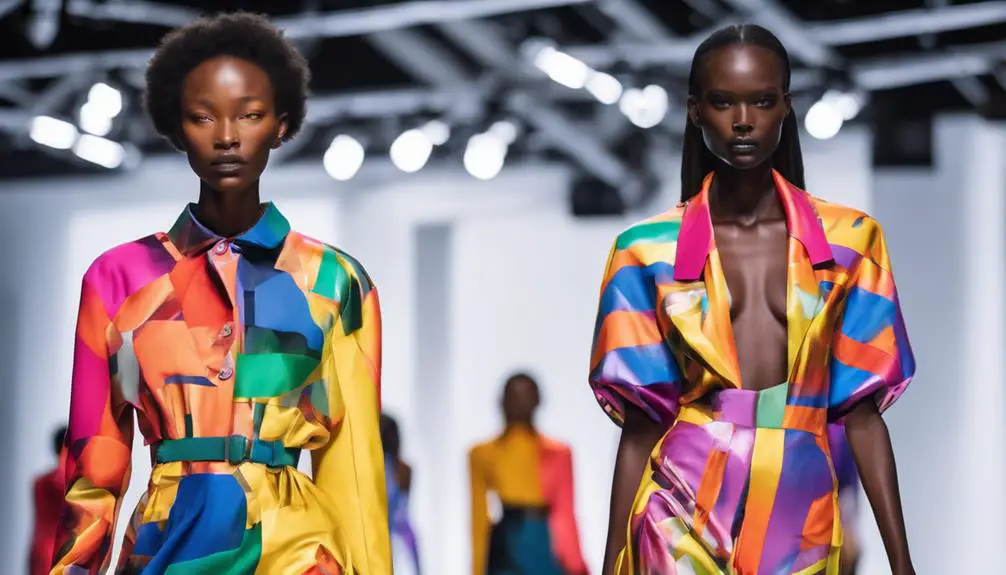
How can Lagos Fashion Week continue to thrive in an ever-evolving global market? Well, there are plenty of exciting paths ahead! First off, you can expect to see more collaborations with international retailers. For instance, pop-up shops like the one at Selfridges featuring 17 African brands are just the beginning. Here are three key directions to ponder:
- Embrace Sustainable Practices: As the world becomes more eco-conscious, integrating sustainable practices will be essential. By focusing on environmentally friendly materials and methods, you can attract more customers who care about the planet.
- Celebrate Cultural Identity: Your unique cultural heritage is a treasure! Emphasizing this in designs can set you apart in the global market. It's important to share your story while staying true to your roots.
- Enhance Local Engagement: Building strong connections within the Nigerian market can lead to more sustainable growth. When local consumers feel a part of the fashion scene, they're more likely to support it.
Lagos Fashion Week is also stepping up its game by offering educational initiatives, like the UNESCO conference, to share knowledge and foster talent. By focusing on collaboration and mentorship, you're not just creating a runway for fashion; you're building a resilient community. This is the future of fashion in Lagos, and it's bright! So, are you ready to be part of this amazing journey?
Frequently Asked Questions
What Is the Biggest Fashion Week in Africa?
Like a vibrant tapestry, Lagos Fashion Week stands out as Africa's biggest fashion event. It showcases African designers, sets fashion trends, and drives event impact, gaining global recognition for its innovative spirit and cultural richness.
What Is the Brief History of Fashion Week?
Fashion weeks began in the early 20th century, showcasing designers and shaping fashion trends. As they evolved, their industry impact grew, creating platforms for designers worldwide, enhancing visibility, and connecting audiences through digital media.
Who Is the Founder of Africa Fashion Week?
In the vibrant tapestry of the fashion industry, Omoyemi Akerele stands as a beacon. She founded Africa Fashion Week, nurturing African designers, igniting runway trends, and fostering collaborations that fuel market growth amidst rich cultural influences.
Who Is the Founder of Swahili Fashion Week?
You'll find that Mustafa Hassanali founded Swahili Fashion Week in 2008, aiming to elevate Swahili designers within the fashion industry. His commitment to local craftsmanship has considerably impacted East Africa's fashion scene.
